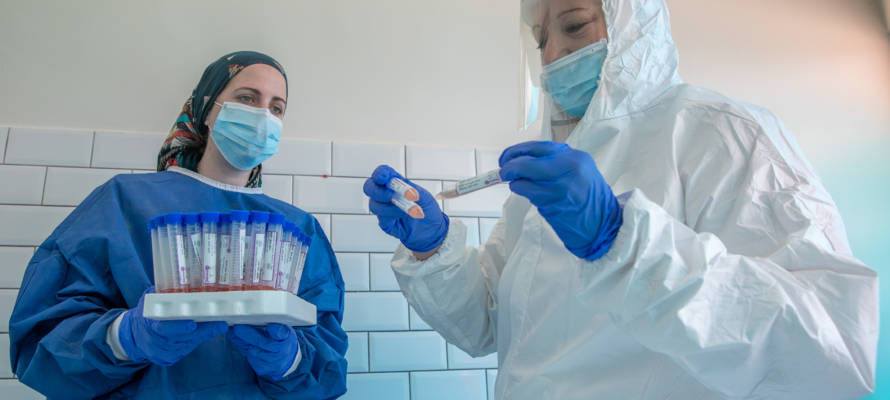Tel Aviv University researchers developed the treatment to block the coronavirus’ progression.
By Yakir Benzion, United With Israel
Move over, Mr. President, Israeli researchers say their new antibody cocktail to treat and prevent COVID-19 may be more effective that the treatment taken by Donald Trump after he came down with the coronavirus.
Scientists at Tel Aviv University (TAU) developed the treatment that they say uses natural antibodies that remain stable in the blood.
“Since the antibodies are natural and remain stable in the blood, one injection can protect against COVID-19 for several weeks, or even several months,” said Dr. Natalia Freund of the Faculty of Medicine.
“Our vision is that in the future, the cocktail will be used to treat COVID-19 patients – like the experimental cocktail administered to U.S. President Trump, or as a preventive measure for high-risk populations and medical personnel – until the much-awaited vaccine finally arrives,” Freund said. “This cocktail was developed naturally by the patients’ immune systems, which means that it is probably safe for use.”
The university said the antibody cocktail will be tested in clinical trials over the next few months. TAU has submitted a patent application for the antibodies discovered by the researchers.
The team of researchers sequenced thousands of different antibodies and filtered them down to isolate six specific antibodies that were derived from the blood plasma of two seriously ill patients who had been hospitalized with coronavirus.
It turns out that the body’s ability to neutralize COVID-19 derives from more than one type of antibody, so that when several antibodies simultaneously attack the virus, the cocktail is effective in neutralizing the coronavirus.
Because it’s early in the pandemic, the researchers found that so far a medical cocktail formed from the combination of three specific antibodies at once successfully provides immunity for up to several months.
They may have also stumbled on a key reason why some people have been infected more than once.
“Only a small portion of the mildly ill participants developed neutralizing antibodies, and some developed no antibodies whatsoever,” Freund said. “Thus, we may assume that people who were infected but remained asymptomatic or developed very mild symptoms may possibly contract the disease a second time. The blood of all severely ill patients, on the other hand, contained neutralizing antibodies that will probably protect them from reinfection.”
